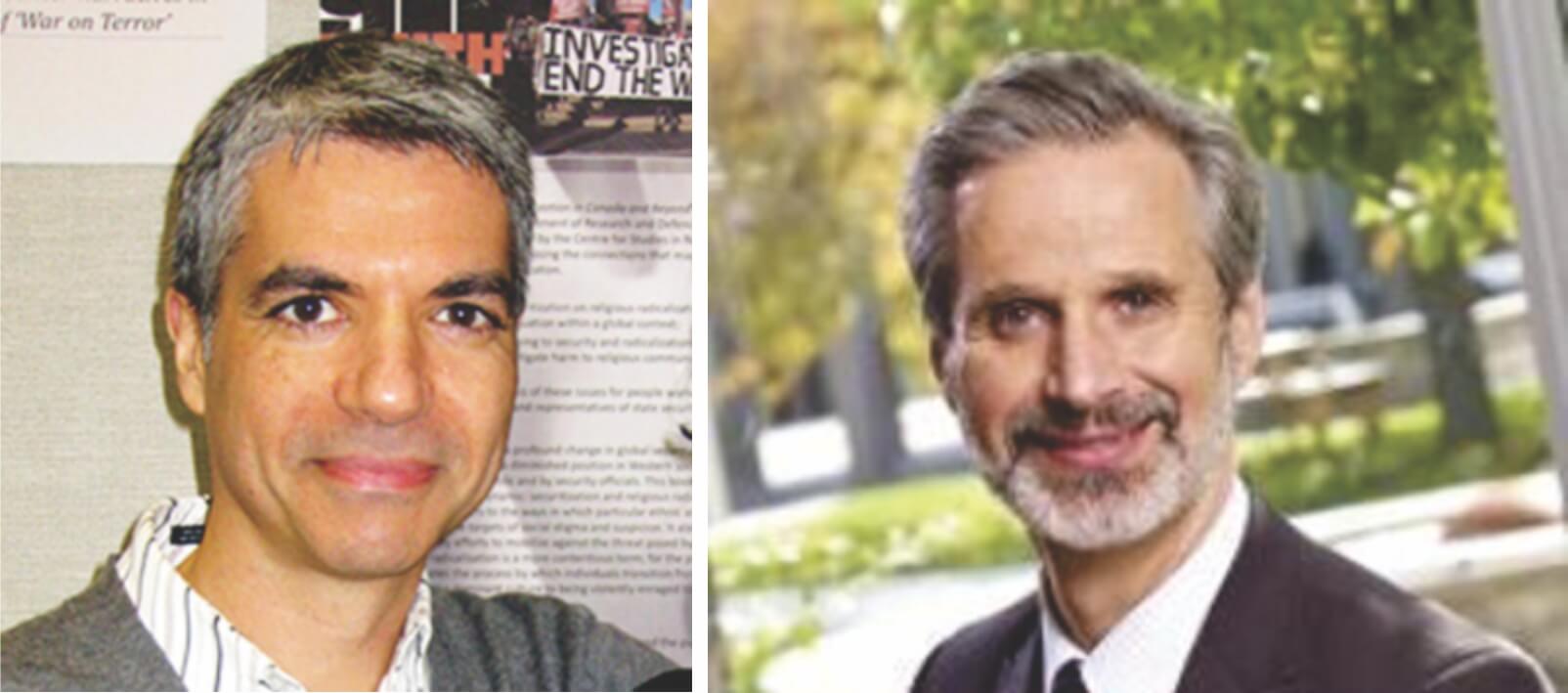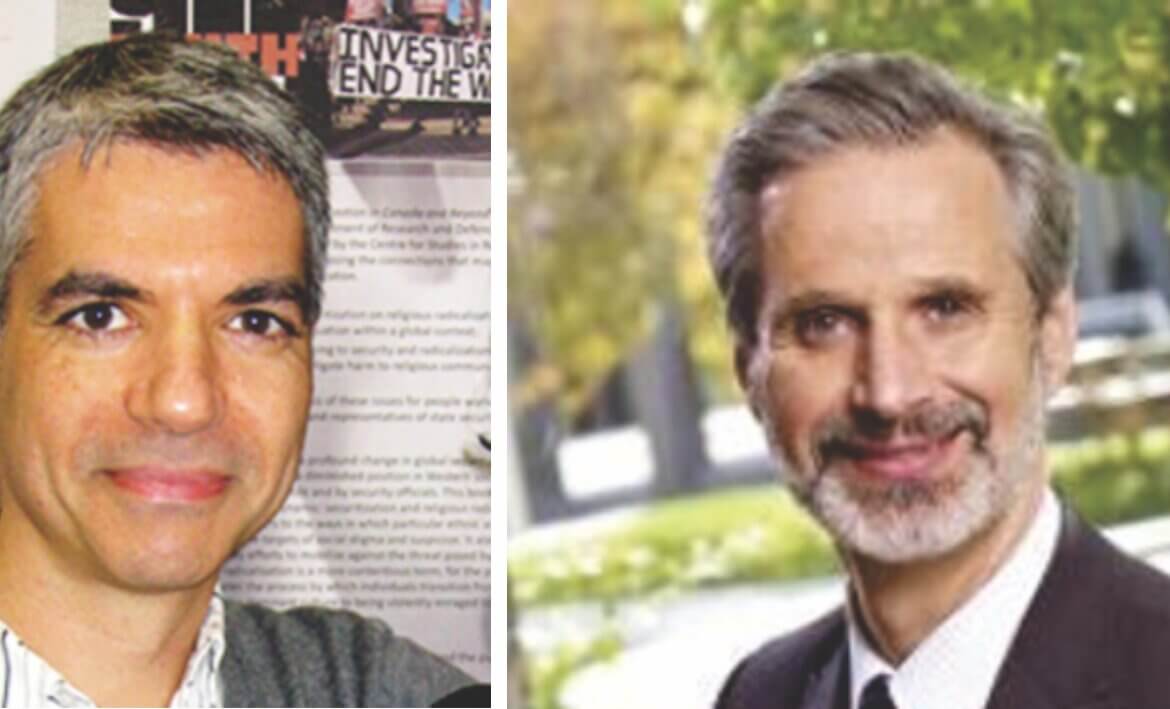Paul Bramadat on Religion and Vaccine Hesitancy
Wendy-Ann Clark
Volume 35 Issue 10, 11 & 12 | Posted: December 23, 2021

While the vast majority of the public has been compliant with safety measures in dealing with the pandemic, resistance to vaccination mandates, mask rules and other requirements has been high among ultra-conservative Catholic and evangelical groups. Vaccine hesitancy has been tied in large degree to religious ideas, but the reasons why are not always clear.
St. Jerome’s University was to tackle this subject October 22 when Paul Bramadat delivered his lecture on Religion and Vaccine Hesitancy in the Age of Anxiety, part of the Waterloo, Ontario, university’s Lectures in Catholic Experience. Mr. Bramadat is director of the centre for studies of religion and society at the University of Victoria in Victoria, B.C.
Not everyone against COVID-19 measures is necessarily religious. It’s similar to what is seen among homeschool advocates where one group is ultra-progressive, doesn’t trust the state, doesn’t trust capitalism and want to raise their children away from the mainstream school system.
On the other hand, you have very conservative religious groups who think public education is socializing their children into pop culture and liberal sexual norms. The same patterns exist in vaccine hesitancy, said Mr. Bramadat.
“You’re finding a lot of vaccine resistance, not just for the COVID vaccine, but vaccine resistance overall, let’s say in California among very progressive crunchy granola types and on the other end, very conservative Christians,” said David Seljak, professor of religious studies at St. Jerome’s on the University of Waterloo campus who is co-ordinating the lecture series.
“They live in a social imaginary world where the mainstream society is considered toxic and, in some way, evil and anyone who participates in that world is untrustworthy. … the policy that comes out of mainstream institutions needs to be resisted.”
In the United States white evangelical Christian Republicans are the least likely to accept mainstream science and cite religious reasons for resisting vaccination and other COVID-19 restrictions. Similar patterns exist in Canada where Evangelical churches have been at the centre of pandemic restriction resistance. Church of God in Aylmer, Ontario, Trinity Bible Chapel in Waterloo and Fairview Baptist Church in Calgary all faced charges for defying COVID-19 restrictions to hold in-person services against health regulations.
Pope Francis
Pope Francis’ support of the vaccine, Mr. Bramadat argues, might help some Catholics who were ambivalent about vaccines change perspectives. For others, the pope’s approval only strengthens alternative narratives about vaccines. Although many are worried about the erroneous anti-science perspectives that circulate in these sub-cultures, what is interesting to Mr. Bramadat is the extent to which these events reveal often-submerged narratives about religious institutions.
“There are Catholic and non-Catholic ‘conspiritualists’ who are inclined to weave every aspect of our society into a single narrative according to which if it appears that all of the big institutions in our society support the same thing, it must, therefore, be proof of a conspiracy,” said Mr. Bramadat.
“These people will consider Francis’ support as yet another confirmation of the powerful conventional forces — church, state, science, business, medicine — that are aligned against the actual truth. This sense of being besieged by well-funded, well-integrated and increasingly robust social forces around the world may simply strengthen their commitment to their alternative narrative.”
While there’s nothing in Catholic doctrine or the Bible that would support resistance to vaccination, per se, Mr. Seljak says, their morality is rooted in the idea that the world is spinning out of control and the government is taking up too much space. General resistance to government interference and the feeling that decisions should be made at the lowest level possible is largely at the heart of the resistance. However, Mr. Seljak says, the pandemic has taught that the neo-liberal dream of a tiny state with a large unregulated free market doesn’t work in emergencies, times of war or pandemic.
Ivermectin
Despite distrust for vaccines, many Catholic and evangelical conservatives have shown enthusiasm for unsubstantiated treatment options such as ivermectin, a medication used mostly to treat parasite infestations in livestock. Data has shown it to be ineffective against COVID-19 and even dangerous.
However, Mr. Seljak argues, should future data support its use in combatting the virus and the government and mainstream media got behind it, the same mainstream averse populations advocating for its use would immediately be against it. This irrationality and inclination toward pseudo-science, Mr. Seljak says, shows the “extreme skepticism and unbelievable gullibility” of people that share these viewpoints.
“They want there to be an alternative to science,” said Mr. Seljak. “They are very gullible when this alternate science is dressed up and thanks to YouTube and other media, you can dress somebody up as a doctor and they can speak eloquently, pushing pseudoscience in a way that seems extremely professional and convincing.
So, it becomes a real problem.” Many believe themselves to be living out a certain morality and Mr. Bramadat’s lecture aims to bring understanding of this perspective.
“They consider the rest of us as following the herd,” said Mr. Seljak. “They are very proud of the fact that they are against the majority.”
Wendy-Ann Clark

